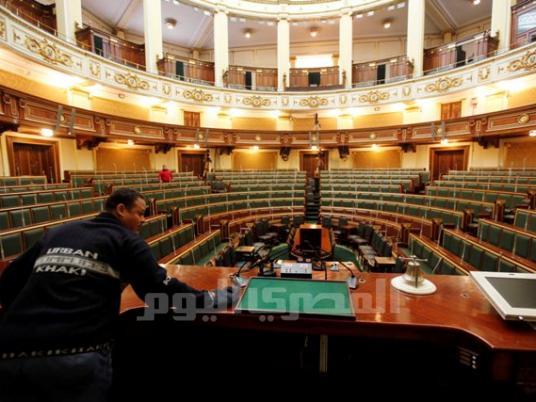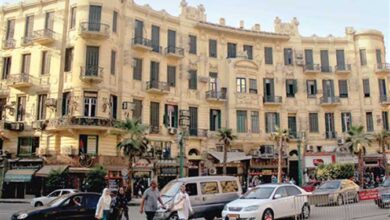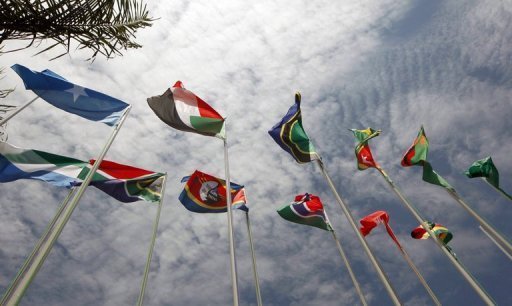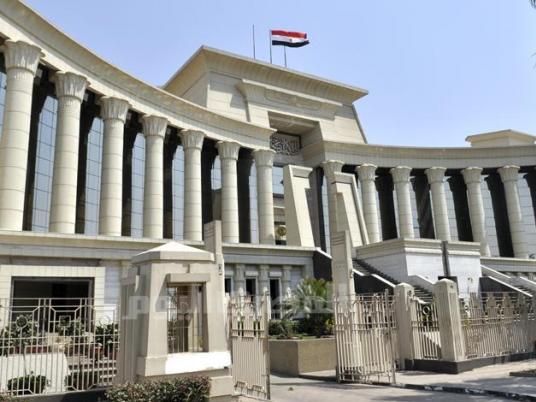
Egypt’s first post-Hosni Mubarak People's Assembly will hold its first session today amid skepticism over the level of autonomy the newly elected lawmakers will yield vis-a-vis the ruling military council.
The Muslim Brotherhood-led Democratic Alliance reaped 235 of the People’s Assembly’s 498 contested seats, rising as the largest parliamentary bloc, according to the final results. The ultra-orthodox Islamist coalition led by the Salafi-oriented Nour Party garnered 123 seats. Among the major secular parties, the Wafd Party and the Egyptian Bloc — which is made up of three parties — earned 38 and 34 seats respectively.
While the Islamist majority is celebrating the imminent inauguration of the People’s Assembly as the moment in which the generals will finally cede legislative authorities to elected lawmakers, Supreme Constitutional Court Vice President Tahani al-Gebali contends that the military will still hold the right to ratify or veto bills.
Under the military-issued temporary constitution, the generals hold the president’s authorities, so they should sign off on bills coming out of Parliament before they become effective, Gebali says.
Such an arrangement ensures a balance of power between the legislature and the executive, adds the constitutional judge, who is believed to be close to military circles.
The same 63-article temporary constitutional declaration gives the Supreme Council of the Armed Forces (SCAF) the right to veto legislation.
“If there is a disagreement, the bill shall return to the People’s Assembly to look into why the SCAF objected to it. If the disagreement between the two continues, the matter shall be referred to the Supreme Constitutional Court,” says Gebali.
Since the generals took over in February, they have held both the executive and legislative powers. They issued several laws that regulated the establishment of political parties and the exercise of political rights, and criminalized protests that would obstruct production. Most of these laws had been drafted by the military-appointed cabinet before they were issued as military decrees.
In recent weeks, the cabinet had drafted at least three bills that could reform Al-Azhar, regulate civil society organizations and lay out procedures and requirements for the presidential election. All bills have proven controversial.
While junior clerics argued that the Al-Azhar bill seeks to tighten the grip of the old scholars on the institution, civil society activists decried the bill on NGOs as highly oppressive. Some of the military’s detractors suspected that the SCAF was rushing to issue the presidential elections law before Parliament convenes to shut out unwanted presidential hopefuls. The SCAF could not ratify any of these bills before Parliament convenes.
Gebali says the generals will still be able to turn these bills into effective laws independently from elected lawmakers even after they are sworn in. She argued that even after Parliament is formed, the SCAF has the right to issue any bill that has been already drafted by the cabinet.
“There is no obligation to send the law to the parliament because it had already gone through all required procedures that were instated before the parliament was elected,” she explained.
However, lawmakers will not remain silent about what they say are potential attempts to tread on their mandate.
“We will consider unconstitutional and non-binding any laws that are issued without being referred to Parliament,” Mohamed Hamed, a parliamentarian representing the liberal Free Egyptians Party, told Egypt Independent.
The Muslim Brotherhood’s Freedom and Justice Party (FJP) leaders ruled out that the constitutional declaration could be used to bypass elected parliamentarians.
“We are not worried; simply they [SCAF] cannot do it,” Hussein Ibrahim, the leader of the FJP parliamentary bloc told reporters on Sunday. “The Parliament represents the popular will.”
In the meantime, Sobhi Saleh, an FJP lawyer and member of the People’s Assembly, downplayed the significance of the clause that grants the military the right to approve legislation, arguing that it is pro forma.
Saleh said there is a different mechanism to sort out disagreements between the generals and Parliament over bills.
“If the SCAF vetoes the bill, it goes back to Parliament. If Parliament approves the bill by two-thirds, it goes into effect automatically,” he told Egypt Independent.
In fact, the temporary constitution is silent on how to resolve such legislative disputes between Parliament and the SCAF, and leaves the matter open to various interpretations. In the meantime, it does not specify how the People’s Assembly can oversee the government’s performance.
“The constitutional declaration is drafted in a particular way that makes the SCAF the custodian of the political system throughout the transitional period,” said Samer Soliman, a political science professor at the American University in Cairo. “It is true that it gives Parliament the right to legislate, but the relationship between Parliament and the SCAF remains ambiguous.”
The constitutional declaration also falls short of specifying how Parliament can oversee the cabinet. Earlier, SCAF member Mamdouh Shahin told the media that Parliament will have no right to appoint ministers or withdraw confidence from the cabinet.
Nevertheless, the 2012 Parliament stands as the first fairly elected legislative body in nearly six decades. It will be entrusted with electing a 100-member constituent assembly to write the new constitution.
“The first mission of Parliament is to make a law that specifies the rules and procedures of the constituent assembly. It shall be ready by the time the Shura Council elections are concluded,” FJP Vice President Essam al-Erian said in a news conference on Sunday. These rules are set to specify the eligibility conditions and the decision-making mechanisms within this assembly.
So far, this particular issue has proven to be the thorniest in Islamist-military relations.
On several occasions, the generals sought to bypass Parliament by settling these matters before it met, out of fear that an Islamist majority would monopolize the process of drafting the new constitution. The Muslim Brotherhood has stood up firmly to such attempts and threatened to take to the streets.
In the same news briefing, FJP parliamentarians told reporters they seek to cooperate with all political parties, the military and the incumbent cabinet until the transitional phase is over. Meanwhile, they said they are contemplating a number of bills that would ensure retribution for the revolution’s victims, achieve social justice, combat corruption and instate political liberties.
“We have a thick legislative agenda,” Azab Mostafa, an FJP lawmaker, told Egypt Independent in a phone interview. He said his party has already prepared 51 draft bills, including ones on reforming the police apparatus, by downsizing its personnel and ensuring strict oversight of its practices, instating a maximum and minimum wage, eliminating monopolies, redistributing public subsidies and easing restrictions on civil society.
Nearly five months stand between Egyptians and the scheduled end of the transitional period. According to the latest-announced schedule, elections for the Shura Council, Parliament’s less-significant upper house, will kick off on 29 January and end by 28 February. A new president should be elected by the end of June.



